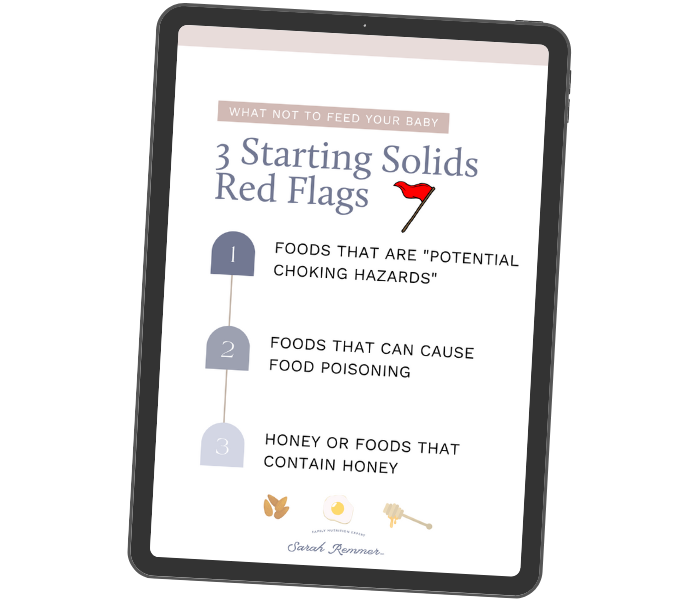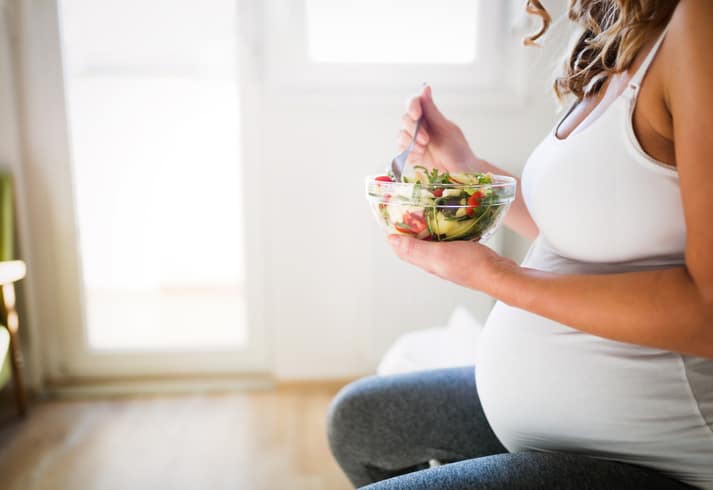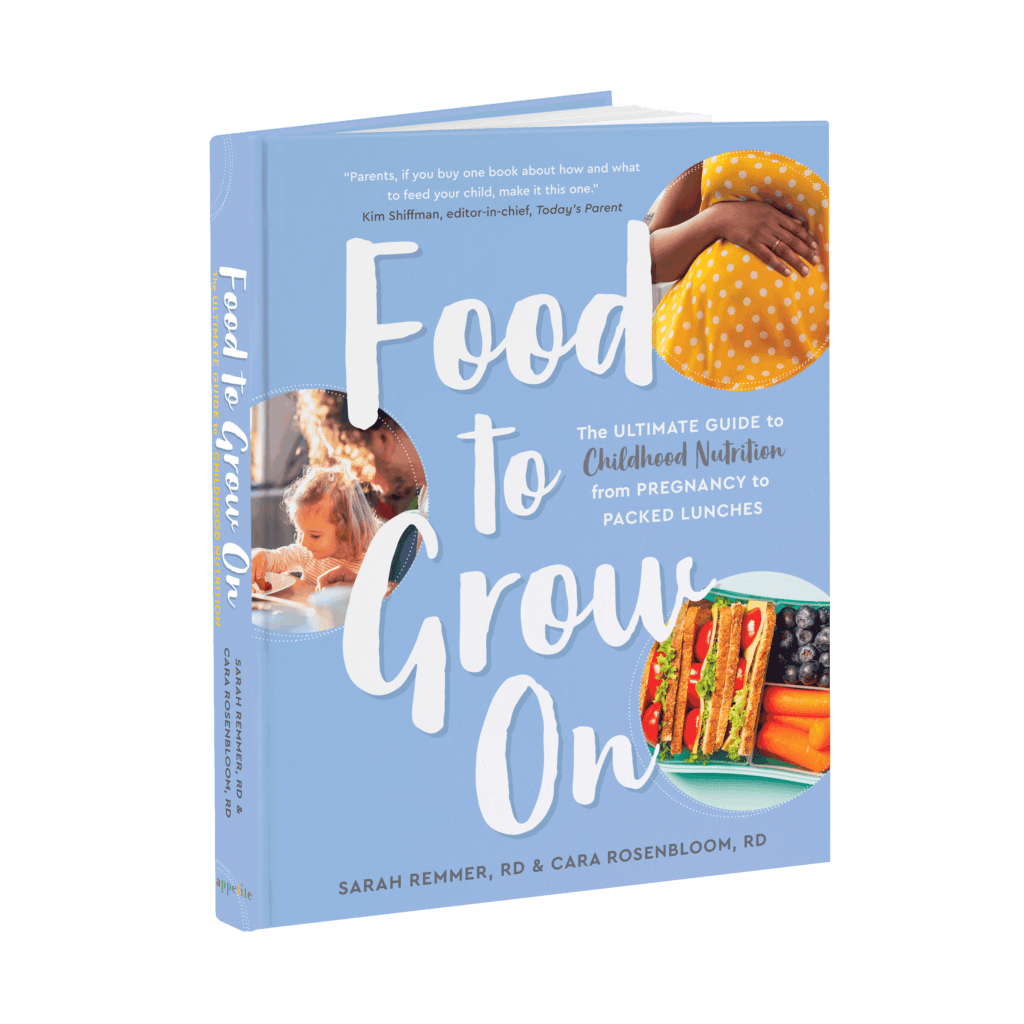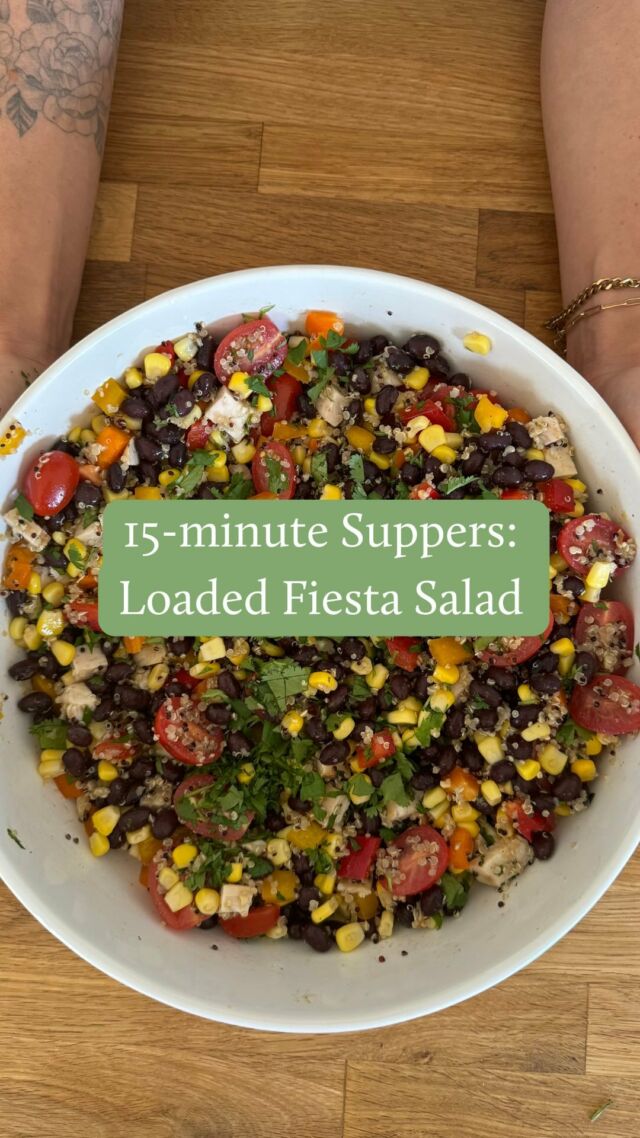Many women struggle with gaining too much weight during pregnancy. But what happens when the opposite is true, and you’re not gaining enough weight during pregnancy? Here’s what you need to know about weight gain during pregnancy.

If you’d like to learn more about this topic in a visual way, check out my Google web stories for 6 tips to help you gain weight during pregnancy.
Need personalized nutrition support?
Book an appointment with one of our pediatric dietitians today!
There may be several reasons that you’re not gaining enough weight during pregnancy—it could be due to excessive nausea, loss of appetite, food aversions, or other digestive concerns. If you’re concerned that you’re not gaining enough weigh, don’t worry. I’ve got you covered. Plus, check this out if you’re looking for the ultimate guide to pregnancy nutrition.
In this post you’ll learn:
- How to figure out how much weight you should gain
- Calorie intake during pregnancy (how do I know how much to eat?)
- How to choose calorie and nutrient-dense foods
- Why Smaller more frequent meals might help
- Why you might want to skip the salad
- Why you shouldn’t turn towards junk food for extra calories
- How to combat nausea
- How to notice food aversions
How to know whether you’re gaining the right amount of weight during pregnancy
First of all, it’s important to understand what healthy pregnancy weight gain looks like. A common way to calculate your target weight gain during pregnancy is by using your pre-pregnancy Body Mass Index (BMI).
Now, I really don’t want to get stuck on the numbers here—especially when it comes to your body mass index (BMI)—because what’s defined as “healthy” according to BMI charts can be a little deceiving or unfair. For example, someone who has lots of muscle may have a higher BMI than what’s considered “healthy,” but may be in great shape and very healthy. Or someone who has a “healthy” BMI due to their genetics may have an unvaried diet and never move their body. BMI is just one assessment tool you can use, but it’s imperfect. Don’t get stuck on it! But for those of you who like numbers, here they are:
To calculate your pre-pregnancy BMI, multiply your weight in kilograms by your height in meters squared. Or if you want a shortcut, just google “BMI calculator” and plug your numbers in. The recommended weight gain during pregnancy depends on which category the pre-pregnancy BMI lands in.
Pregnancy Weight Gain
| Prepregnancy BMI | Weight category | Weight gain for full-term pregnancy | Weight gain for full-term pregnancy with twins |
| Below 18.5 | Underweight | 28 to 40 pounds | No set guidelines |
| 18.5 to 24.9 | Normal weight | 25 to 35 pounds | 37 to 54 pounds |
| 25.0 to 29.9 | Overweight | 15 to 25 pounds | 31 to 50 pounds |
| 30.0 and above | Obese | 11 to 20 pounds | 25 to 42 pounds |


Starting solids? Don’t panic.
Starting solids is an exciting milestone in your baby’s life, but it can also be confusing, especially when you’re overloaded with conflicting information on how and when to do it. Download your free guide to starting solids and clear the confusion!
Calorie intake during pregnancy
I’m not keen on overemphasizing calorie goals or ranges because I really want to encourage you to listen to your body when it comes to the amount of food you eat at any given meal or snack. And quite frankly, counting calories sucks and takes the enjoyment out of eating! But here’s what I will tell you:
- During your first trimester, it’s not necessary to eat any more than normal. So just eat like you normally would!
- During the second trimester, it makes sense that you’re hungrier than normal, because your energy and nutrient needs are rising. It’s good to eat a little more: about 300 to 350 extra calories. That’s like an extra snack each day.
- During the third trimester is when your nutrient and energy needs are the highest throughout your pregnancy, and it’s advised to eat an extra 400 to 450 calories per day. That could be an extra snack (Greek yogurt, berries, and granola) or maybe a little more at each meal.
How many extra calories do I need (assuming that you’re starting out at a healthy BMI)?
| Stage of pregnancy | Calorie intake |
| First trimester | No additional calories |
| Second trimester | Add 300 to 350 calories per day |
| Third trimester | Add 400 to 450 calories per day |
Any additional calories that you take in should come from nutrient-dense foods such as lean protein, vegetables, fruits, and whole grains. Limit foods that are overly processed with a lot of added sugar, salt, or fat to only once in a while. But do give yourself permission to indulge once a day on something that you absolutely love and can’t live without.

Starting solids? Don’t panic.
Starting solids is an exciting milestone in your baby’s life, but it can also be confusing, especially when you’re overloaded with conflicting information on how and when to do it. Download your free guide to starting solids and clear the confusion!
I’m having trouble gaining enough
If you’re having trouble gaining enough weight during pregnancy, know that you’re not alone. This is a common concern and something that can be managed with a little bit of extra knowledge and even some help from a registered dietitian if you and/or your doctor are concerned. Lack of weight gain can happen because of many reasons, including:
- excessive nausea
- loss of appetite
- food aversions
- other digestive concerns
- you might be a small or particular eater to begin with, and may need to pay a little bit more attention to what and how much you’re eating.

To help ensure that you are gaining enough weight throughout your pregnancy, and in a healthy way, here are my top 6 tips:
1. Choose calorie-dense (and nutrient-dense) foods
If you have a small appetite, it’s crucial to make every bite count! That means you want to get the most nutrition (protein, vitamins, minerals etc.)in the foods you choose. Even if you get full quickly or have a small appetite, you know you took in some great nutrition. Foods that are high in calories and chock-full of nutrients are:
- Nuts, seeds, and nut butters
- Avocados
- Olive oil as a topping or dressing
- Whole grain pasta, oats, brown rice, and other whole grains
- Legumes like lentils, chickpeas, and beans
- Fatty fish like salmon
If you’re needing some recipe inspiration for nutrient-dense meals and snacks, check out one of my fave cookbooks, Nourish. On top of this, you should be making sure that you’re taking a prenatal multivitamin, vitamin D and perhaps even an Omega-3 supplement too. Here are some nutrients (and foods) that you should be paying extra attention to during pregnancy.
2. Try smaller, more frequent meals
You may be turned off of larger portion sizes of foods, and eating might feel overwhelming if your plate is too full (which can actually decrease your appetite). Instead, try having five or six smaller more snack-sized, lighter meals that aren’t so overwhelming. For example, instead of having a big spaghetti dinner, have a piece of French toast with greek yogurt and berries. Or make a batch of homemade protein-rich muffins or energy bites that you can snack on throughout the day or on-the-go. These snack-sized meals can still pack a nutritional punch and provide the calories that you need, but might be less overwhelming and more appealing (meaning, you’ll eat more!).

3. Salads are great but may be too low in calories
Wait, what? Did a dietitian just advise you to skip a salad? While vegetables are super-healthy, they are not calorically-dense and high in fiber. A big bowl of lettuce with cucumber can make you feel full quickly, but is too low in calories. That’s not enough to meet your needs! If you really have a low appetite and can eat only a small amount, it’s better to have more calories with every bite. For example, try whole grain toast with peanut butter and banana slices (yes, you CAN and SHOULD eat peanuts when you’re pregnant), or a pasta salad with avocado, nuts, meat and cooked veggies which would have more calories than a light green salad.
Look at the numbers to see what I mean:
- Whole grain toast with 1 tablespoon peanut butter and a banana: 220 calories
- 1½ cups romaine lettuce and cucumbers: 20 calories
- 1½ cups romaine lettuce, cucumbers, and 1 teaspoon dressing: 60 calories
If you ARE craving salad, what can you add to it? Maybe it means adding a tablespoon of dressing to your lettuce, and topping it with nuts, seeds, chickpeas, quinoa, avocado, or any other calorie-dense foods.
4. Energy dense foods are fine in moderation
We know what you’re thinking: “I need to eat more calories! I can have all of the ice cream I’ve ever wanted!” If only it were that easy! Yes, you need more calories. BUT. You also don’t need tons of sugar and fat. You want the calories to come from nutritious foods (see list above). Of course, you can enjoy ice cream mindfully, but please don’t get your day’s worth of calories from pint after pint of creamy goodness.

5. Combat nausea in pregnancy
Morning sickness can sometimes turn into all-day-sickness. Luckily, by the time you enter your second trimester, when weight gain starts to ramp up, nausea usually starts to wind down. If you’re one of the unlucky (approximately half of all pregnant women) who feels pregnancy-related nausea, here are some tricks that may help:
- Keep a snack on your night table. Have a bite before bed and in the morning. Soda crackers are a popular option!
- Avoid getting too hungry – that can lead to nausea. It might be your first instinct to avoid food when you feel nauseous, but that is the opposite of what you should do. Eating every two to three hours will help keep nausea at bay! Keep high calorie snack options (like nuts) with you throughout the day.
- Don’t take your nutrition supplements on an empty stomach–make sure you combine with a meal or snack.
- Try ginger. This age old-remedy is backed by science too. Try making tea with fresh ginger. You can use ginger in cooking and baking. Ginger snaps anyone?
- Stay hydrated, especially if nausea is accompanied by vomiting. Try drinking your fluids before or after meals, as opposed to with your meal. This is my favourite water bottle (that I carry around always!) to help me remember to stay hydrated.
If none of these tips help and you really can’t keep any food down, you may have hyperemesis gravidarum, and should discuss it with your doctor. They can prescribe medication to help.
6. Notice food aversions in pregnancy
There may be certain smells or flavors that turn your stomach when you’re pregnant – and often they are foods you used to love. Common food aversions are to strong flavors, such as garlic, onion, spice and coffee. If you can’t stand the taste or smell of certain foods, simply avoid them. Know that it’s totally normal, it’s common, and it will pass!
Commonly Asked Questions About Pregnancy Weight Gain
The weight gain ranges below are for a full-term pregnancy:
• Underweight: 28 to 40 pounds
• Normal: 25 to 35 pounds
• Overweight: 15 to 25 pounds
• “Obese”: 11 to 20 pounds
On average, people gain 1 to 4 pounds in the first trimester — but it can vary. Expect to gain ½ a pound to one pound (. 23 to . 45 kg) per week during the rest of your pregnancy. Ultimate guide to pregnancy nutrition.
Some initial weight gain will happen in the first 12 weeks of pregnancy. The majority of weight gain will occur during the second and third trimester. How much is too much?

If you need some personalized guidance on your nutrition during pregnancy, contact us to book an appointment with our dietitian team (most people have coverage for our services through their health benefits plan).

Food to Grow On
Food to Grow On is the definitive guide to childhood nutrition, packed with practical advice to support you through pregnancy, and up until your little one starts school.
Laid out in an easy-to-navigate question and answer style, this book provides practical advice and support from Sarah Remmer and Cara Rosenbloom, two trusted registered dietitians (and moms). Food to Grow On is packed with hard-earned parenting wisdom and the very latest research in pediatric nutrition, so you will feel supported, understood, and ready to help your child thrive.








Comments
Rose says
Please I really want to add weight in the place, tell me what to eat
Sarah Remmer says
Hello Rose, thanks for stopping by. We know how frustrating and concerning this can be. Please reach out to my team here so we can offer you individual advice: https://www.sarahremmer.com/book-an-appointment/
Kim says
I’m 18 weeks pregnant and I’ve barely gained any weight. I have had a lot of anytime sickness and I had to go the emergency room 3 times because of dehydration. I’m really trying to eat small meals so that something stays but just not very hungry at times. I have read a lot that this is normal and hoping that this turns around so I can eat more than I have been.
Sarah Remmer says
Oh Kim, this sounds so terrible! I’m so sorry you are going through this. If you need to book a session with us, please do reach out – bookings@sarahremmer.com
Morenikeji says
Am 31 weeks pregnant,my baby’s weight is 1.74kg and am 68.0kg is that normal or my baby needs to gain more weight than that.
Sarah Remmer says
Hi there! I’d love to help you if you have specific questions. I am not able to give specific nutrition advice here. Please contact me here: https://www.sarahremmer.com/contact/
Ayesha says
Im 30 weeks pregnant and weigh 48.5 kg. Pre-pregnancy weight was also 48.5 k (although I lost 3 kg in the first trimester due to vomiting). Eating at least 2300 calories a day and mantaining a good diet. My doctor says baby seems to be of normal size and weight but I’m confused as to why my weight is not increasing at all.
Sarah Remmer says
Ayesha, thank you for sharing your story with me. That can definitely feel super scary! Please reach out to me for further information here: https://www.sarahremmer.com/contact/
Sarah Remmer says
Stay well xx
Syeda says
Hi thanks for the article. I cant solve this mystery! I am 29 weeks pregnant and have not gain a single kg. But my scans have showed absolutely healthy fetus.
Miranda says
Hello,
I am currently 29 weeks pregnant and I have only gained about 7 lbs so far in my pregnancy.
I eat a healthy diet including all food groups and I believe I eat enough each day although I don’t calorie count.
My BMI was on the low side at the start of my pregnancy at just 18, and I have gained 7 lbs since then.
Do you have think this is something I need to improve, and do you think I need to up my calories even more?
Thanks!
Octavia says
Hey I am 36 weeks and have not gained any weight my Dr. doesn’t seem to think it’s a problem should I be worried I have 4 other children and never had this problem
Emma says
Hello, I am now in same situation. 37weeks pregnant and i didnt gain any wight. Please tell me if everything went ok with you?
Sarah Remmer, RD says
Hello Emma, I’d love for you to see one of our counselling dietitians. They would be able to support you and any concerns you have: https://www.sarahremmer.com/book-an-appointment/
Happy mom says
Am 46.5 kg and 15 weeks pregnant. Height is 5.3’ . Have not gained any weight since the last three plus months . I don’t feel hungry and have a poor diet . I don’t take any supplements as I get acidity and constipation when I take them. Also I am a pure vegetarian . Baby is normal as per the scans . Should I be bothered as I feel normal and don’t have any issues so far .
Sarah Remmer says
Thanks for reaching out. Fluctuation in weight gain throughout pregnancy can be different for many women – especially in the first trimester. My concern would be your report of poor diet, vegetarian eating habits and supplementation tummy trouble. As a vegetarian there are certain nutrient requirements that are tough to achieve (iron, b12, etc). During pregnancy these nutrients are especially important because your baby needs them to grow and develop and will rely on your stores to achieve this. Other nutrients like vitamin D, omega-3 and folate are also important to ensure a healthy baby :). I would love to support you through your pregnancy. Please reach out to me at lesley@sarahremmer.com. I’m here to help!
Nickeisha says
im concerned, last month when i went to the doctor i gained 5lbs, im suppose to go back on the 21st of May, but i decided to go get my weight checked i have not gained a pound since april 16, could something be wrong
Sarah Remmer says
If you’re concerned I would contact your doctor for guidance. But keep in mind that weight gain for pregnancy can fluctuate just like regular weight gain as well. For example – during one of my pregnancies I was pregnant over the Christmas season. My weight gain was much higher during my check up in December and I didn’t gain in January. Your weight gain from month to month may differ and weight stability does not necessarily mean that something is wrong. I hope this eases your mind. Your doctor who is following your pregnancy will be able to guide and reassure you. If you’re still concerned about your weight gain during pregnancy feel free to email me at sarah@sarahremmer.com or comment again 🙂
Dan Raines says
A well balanced diet with lots of fruits and veggies and lean proteins are still good for you and your growing baby, foods to avoid is fish high in mercury, too much caffeine, alcohol, you should heat up lunch meats, undercooked/ raw meats, and unpasteurized foods. During the first trimester you do not need any extra calories, during your second and third you need to eat an extra 300 calories a day. When I was pregnant with my second child I was determined to avoid getting preeclampsia again and followed the brewers diet for pregnant women. My first was 9lbs 7ozs 6 days early and my second was 6lbs 8ozs two days past the due date.
Sarah Remmer says
Thanks Dan! You’ve got it. Congrats on your babies 🙂
Argita says
Im 16week pregnancy, 34 years old,my weught is 48.4kg, i not gain weight a yet,im scary for mya baby and development baby, what can i do thanks
Sarah Remmer says
Hi Argita. Thanks for reaching out. Firstly, you’re okay :). It’s not uncommon to not gain much weight in your first trimester. As you’re entering into your second trimester you should see your weight gain start to increase. Continue to eat regular meals and snacks each day, but add in more protein to snacks in the form of nut butters, nuts and yogurt! If you’re eating low-fat food – stop. I’m a huge fan of 2% and higher %MF when it comes to yogurts – my personal favourite is 5%. It’s oh so creamy, filling, and nutritious. These are just a few small changes that you can make. If you’re still concerned about your weight gain please feel free to email me at sarah@sarahremmer.com or post again! I’m here to help! And talk to your doctor about your concerns – she might be able to provide you some assurance as it pertains to baby’s development. As a fellow mom I totally get how scary pregnancy can feel. Take care of yourself and congrats!
Maan boie says
Hello there
I’m on my 5th months of my pregnancy.. I’m eating a lot of fruit and vegetables by this time and I’m in control on rice because the last time when I visited my obgyne. My blood pressure getting a little bit high. I have an early delivery on my first born because of same condition regarding my blood pressure..any suggestions so I can delivered on exact month by this time.. thank you so much..
Sarah Remmer says
Hi Maan. What you’re describing sounds like gestational hypertension. With your first born was your delivery related to preeclampsia? I’d love to know more about what you are experiencing and how I can help. It sounds like you’re already eating a healthy diet of fruit and vegetables. Fish (low mercury) would also be beneficial, as well as watching any high sodium or highly processed foods. Make sure you’re drinking enough water and aim for a little bit of exercise each day. Chasing a toddler around while pregnant can often count ;). Please reach out again via the comment section or email me at sarah@sarahremmer.com if you have more questions or concerns.
Syeda says
Im 20 weeks pregnant, since last month my weight is 58, before im pregnant my weight was 61kg, women are getting weight while they were pregnant but i continued to lose weight, my Dr said its not necessarily to gain weight at this point, Main thing is your’s baby heart beat, i lost my appetite, i still have nausea in 4th month.
John says
Very informative.My cousin had this same problem and she has made a consultation with A Woman’s Haven for better diet routines and to know more about pregnancy and related services.
hellen says
very informative. am five months pregnant and am struggling with weight issues